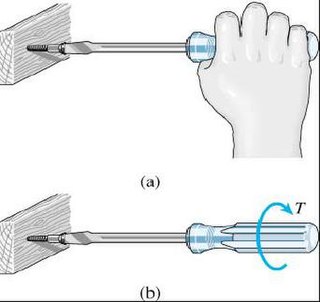
Usability can be described as the capacity of a system to provide a condition for its users to perform the tasks safely, effectively, and efficiently while enjoying the experience. In software engineering, usability is the degree to which a software can be used by specified consumers to achieve quantified objectives with effectiveness, efficiency, and satisfaction in a quantified context of use.
Activity theory is an umbrella term for a line of eclectic social-sciences theories and research with its roots in the Soviet psychological activity theory pioneered by Sergei Rubinstein in the 1930s. It was later advocated for and popularized by Alexei Leont'ev. Some of the traces of the theory in its inception can also be found in a few works of Lev Vygotsky. These scholars sought to understand human activities as systemic and socially situated phenomena and to go beyond paradigms of reflexology and classical conditioning, psychoanalysis and behaviorism. It became one of the major psychological approaches in the former USSR, being widely used in both theoretical and applied psychology, and in education, professional training, ergonomics, social psychology and work psychology.
The following outline is provided as an overview of and topical guide to human–computer interaction:
The International Federation for Information Processing (IFIP) is a global organisation for researchers and professionals working in the field of computing to conduct research, develop standards and promote information sharing.

The University of Madeira is a Portuguese public university, created in 1988 in Funchal, Madeira. The university offers first, second cycle and Doctorate academic degrees in a wide range of fields, in accordance with the Bologna process. It is now under the CMU/Portugal agreement with Carnegie Mellon University, having master programme in Computer Engineering, Human Computer Interaction and Entertainment Technology. Students admitted will be eligible for scholarships and have internship opportunity during the summer break. In addition, Madeira Interactive Technologies Institute, founded in January 2010, is devoted to building international partnership with other educational institutes and industry.

Lucy Suchman is Professor Emerita of Anthropology of Science and Technology in the Department of Sociology at Lancaster University, in the United Kingdom, also known for her work at Xerox PARC in the 1980s and 90s.

Paul Dourish is a computer scientist best known for his work and research at the intersection of computer science and social science. Born in Scotland, he holds the Steckler Endowed Chair of Information and Computer Science at the University of California, Irvine, where he joined the faculty in 2000, and where he directs the Steckler Center for Responsible, Ethical, and Accessible Technology. He is a Fellow of the AAAS, the ACM, and the BCS, and is a two-time winner of the ACM CSCW "Lasting Impact" award, in 2016 and 2021.
Contextual design (CD) is a user-centered design process developed by Hugh Beyer and Karen Holtzblatt. It incorporates ethnographic methods for gathering data relevant to the product via field studies, rationalizing workflows, and designing human–computer interfaces. In practice, this means that researchers aggregate data from customers in the field where people are living and applying these findings into a final product. Contextual design can be seen as an alternative to engineering and feature driven models of creating new systems.

Anind Dey is a computer scientist. He is the Dean of the University of Washington Information School. Dey is formerly the director of the Human-Computer Interaction Institute at Carnegie Mellon University. His research interests lie at the intersection of human–computer interaction and ubiquitous computing, focusing on how to make novel technologies more usable and useful. In particular, he builds tools that make it easier to build useful ubiquitous computing applications and supporting end users in controlling their ubiquitous computing systems.
Rebecca Elizabeth "Beki" Grinter is a professor in the School of Interactive Computing in the College of Computing at the Georgia Institute of Technology. She is affiliated with the RIM@GT, the GVU Center and the Scheller College of Business. Grinter's research lies generally in the fields of human-computer interaction (HCI) and computer-supported cooperative work (CSCW). She has chaired and published papers in top-tier academic conferences in these fields. Her research and expert opinion on technology have also been reported in major news media sources.
The Conference on Mobile Human-Computer Interaction (MobileHCI) is a leading series of academic conferences in Human–computer interaction and is sponsored by ACM SIGCHI, the Special Interest Group on Computer-Human Interaction. MobileHCI has been held annually since 1998 and has been an ACM SIGCHI sponsored conference since 2012 The conference is very competitive, with an acceptance rate of below 20% in 2017 from 25% in 2006 and 21.6% in 2009. MobileHCI 2011 was held in Stockholm, Sweden, and MobileHCI 2012 which was sponsored by SIGCHI held in San Francisco, USA.

Human–computer interaction (HCI) is research in the design and the use of computer technology, which focuses on the interfaces between people (users) and computers. HCI researchers observe the ways humans interact with computers and design technologies that allow humans to interact with computers in novel ways. A device that allows interaction between human being and a computer is known as a "Human-computer Interface (HCI)".

Robert E. Kraut is an American social psychologist who studies human-computer interaction, online communities, internet use, group coordination, computers in organizations, and the role of visual elements in interpersonal communication. He is a Herbert Simon Professor of Human-computer Interaction at the Human-Computer Interaction Institute at Carnegie Mellon University.
Digital Live Art is the intersection of Live Art, Computing and Human Computer Interaction (HCI). It is used to describe live performance which is computer mediated - an orchestrated, temporal witnessed event occurring for any length of time and in any place using technological means. Digital Live Art borrows the methods, tools and theories from HCI to help inform and analyze the design and evaluation of Digital Live Art experiences.

The Madeira Interactive Technologies Institute (M-ITI) is a teaching and research institute of the University of Madeira, headquartered in Funchal, Madeira Island, Portugal.

Human factors and ergonomics is the application of psychological and physiological principles to the engineering and design of products, processes, and systems. Primary goals of human factors engineering are to reduce human error, increase productivity and system availability, and enhance safety, health and comfort with a specific focus on the interaction between the human and equipment.

Guy André Boy is a French and American scientist and engineer, Fellow of the International Council on Systems Engineering (INCOSE), the Air and Space Academy, and the International Academy of Astronautics. He is FlexTech chair holder and university professor at CentraleSupélec and ESTIA Institute of Technology. He is also a visiting scholar at ISAE-SUPAERO. He was a university professor and dean (2015–2017) at Florida Institute of Technology (FIT), where he created the Human-Centered Design Institute in 2010. He was senior research scientist at Florida Institute for Human and Machine Cognition (IHMC). He was Chief Scientist for Human-Centered Design at NASA Kennedy Space Center (KSC) from 2010 to 2016. He is known for his work on intelligent assistance, cognitive function analysis, human-centered design (HCD), orchestration of life-critical systems, tangible interactive systems, and human systems integration.
Feminist HCI is a subfield of human-computer interaction (HCI) that applies feminist theory, critical theory and philosophy to social topics in HCI, including scientific objectivity, ethical values, data collection, data interpretation, reflexivity, and unintended consequences of HCI software. The term was originally used in 2010 by Shaowen Bardzell, and although the concept and original publication are widely cited, as of 2020 Bardzell's proposed frameworks have been rarely used since.

Jacob O. Wobbrock is a Professor in the University of Washington Information School and, by courtesy, in the Paul G. Allen School of Computer Science & Engineering at the University of Washington. He is Director of the ACE Lab, Associate Director and founding Co-Director Emeritus of the CREATE research center, and a founding member of the DUB Group and the MHCI+D degree program.
Joëlle Coutaz is a French computer scientist, specializing in human-computer interaction (HCI). Her career includes research in the fields of operating systems and HCI, as well as being a professor at the University of Grenoble. Coutaz is considered a pioneer in HCI in France, and in 2007, she was awarded membership to SIGCHI. She was also involved in organizing CHI conferences and was a member on the editorial board of ACM Transactions on Computer-Human Interaction.